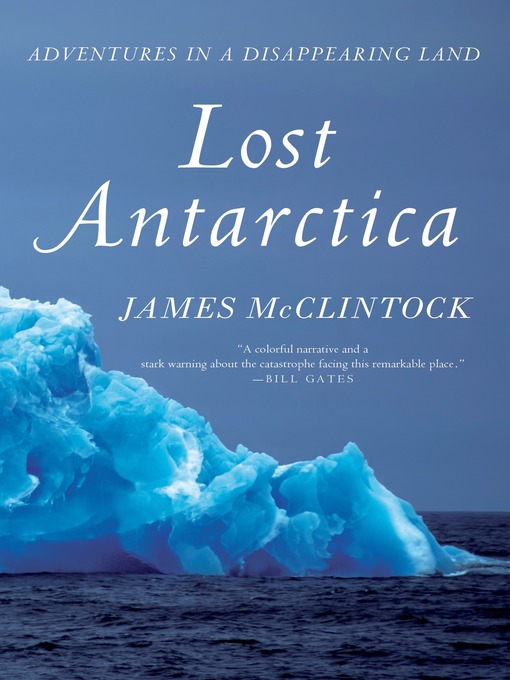
Lost Antarctica
Adventures in a Disappearing Land
کتاب های مرتبط
- اطلاعات
- نقد و بررسی
- دیدگاه کاربران
نقد و بررسی

June 18, 2012
The Endowed Professor of polar and marine biology at the University of Alabama–Birmingham, McClintock distills 28 years of research and 13 field expeditions to the seventh continent in his first book of popular science: an eminently readable, reasonable call to arms regarding the dangers of climate change to both the fragile Antarctic ecosystem and the planet as a whole. Each chapter covers a different angle of the problem, from the deleterious effects of increasing ocean acidification to invasions of the Antarctic Shelf by king crabs spurred by warming waters, as McClintock steadily and carefully builds his case for Antarctica as “the earth’s most well-suited natural laboratory” in which to study the impacts of climate change. Though the lab results can be scary, his kinetic, awestruck descriptions of “the Ice” paint breathtaking pictures, such as when he is “flying by helicopter down the gut-dropping length of the Taylor Dry Valley and erupting out of its mouth over the deep-blue waters set against the sparkling white expanse of McMurdo Sound’s ice edge.” Charming and anecdote-filled, the book’s only failing is that McClintock occasionally gets lost in thickets of scientific jargon, but like your favorite undergraduate science professor, he finds a way to make the most difficult, esoteric concepts accessible to the layperson. Photos. Agent: Katherine Flynn, the Kneerim and Williams Agency.

July 15, 2012
A richly informative memoir from a veteran scientist who has devoted his career to Antarctica. McClintock (Polar and Marine Biology/Univ. of Alabama, Birmingham) has undertaken 13 research expeditions to the far south, perhaps a record, and he writes an entertaining account, mixing anecdotes of these complex, often dangerous operations with their discoveries of the abundant life that thrives around a barren, frozen continent. Long periods of sunlight and circulation patterns that bring nutrients up from the bottom make icy southern seas far more productive than the tropics. At the bottom of the food chain are microscopic plants (phytoplankton) whose photosynthesis converts the sun's energy to food for microscopic animals (zooplankton) and vast numbers of small shrimplike organisms (krill), which support innumerable invertebrates, dozens of species of birds, fish, whales, seals and penguins. Inevitably, global warming is exerting its baleful effect. Glaciers are melting. Sea ice is receding. The same increasing atmospheric carbon dioxide that heats the earth is dissolving into the ocean, making it more acidic, damaging the carbonate shells of sea creatures and disordering their metabolism. Simultaneously, organisms from the north are migrating into slightly warmer Antarctic waters whose species, too finely tuned to their surrounding to adapt quickly, are dwindling. Entertaining natural history.
COPYRIGHT(2012) Kirkus Reviews, ALL RIGHTS RESERVED.

























دیدگاه کاربران